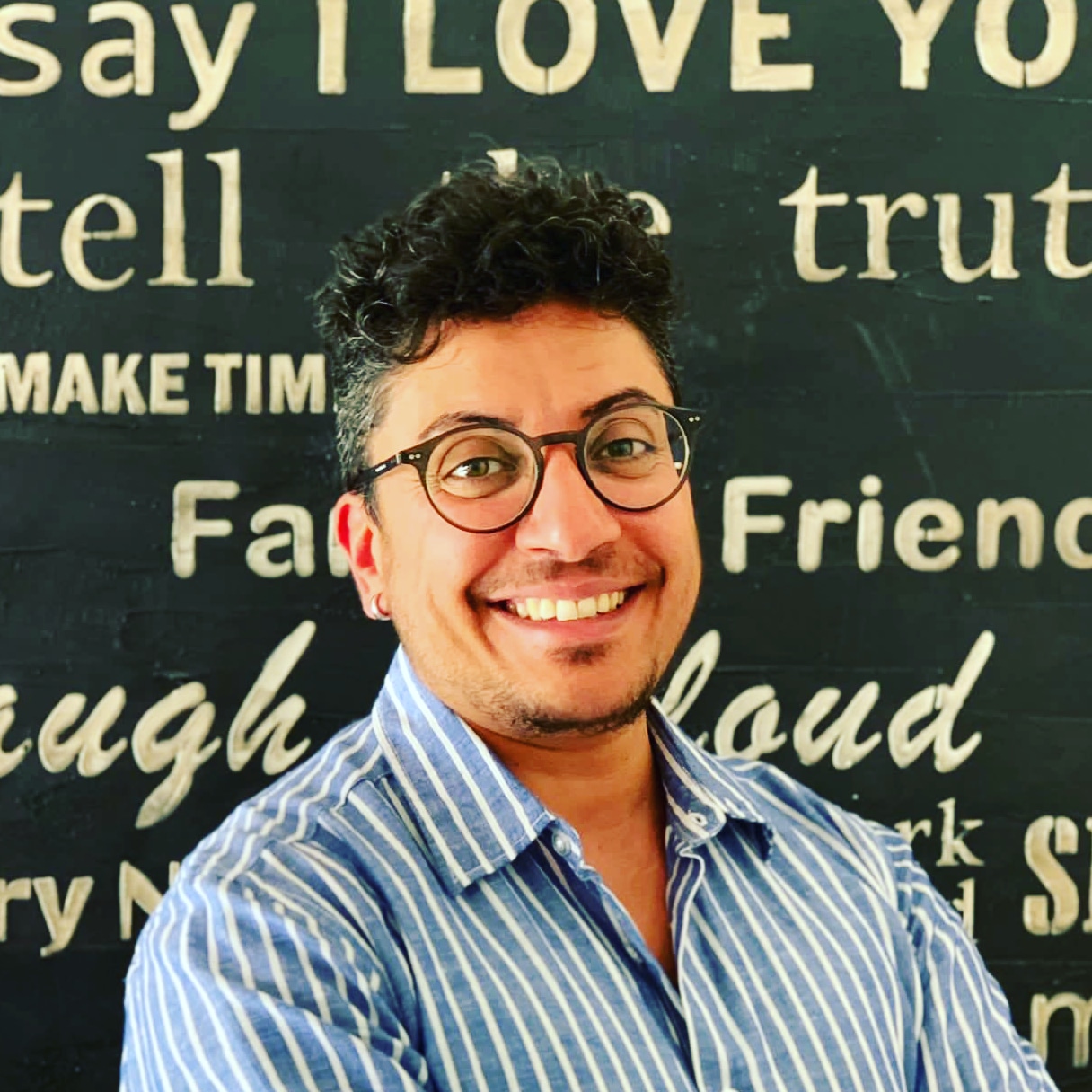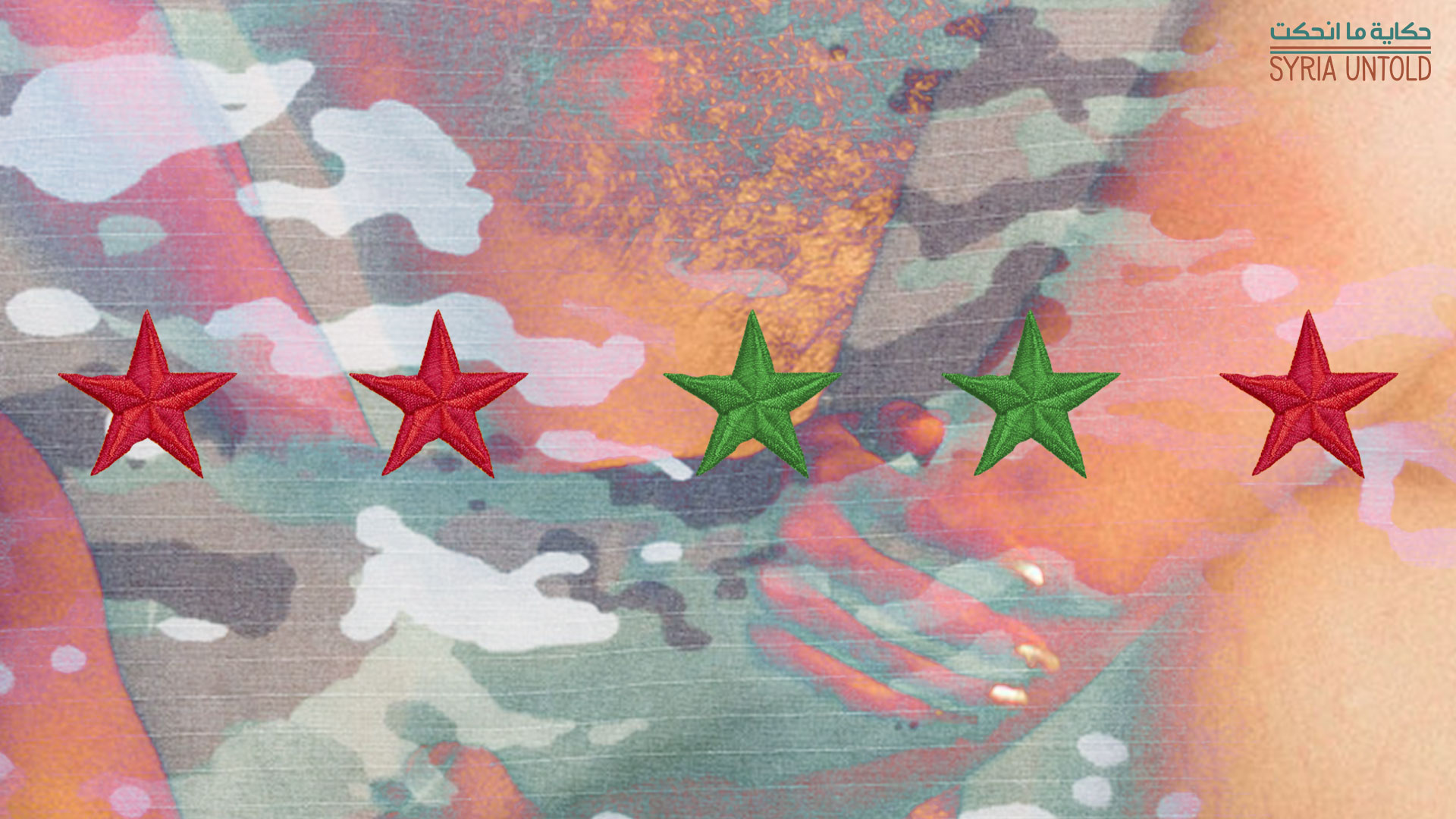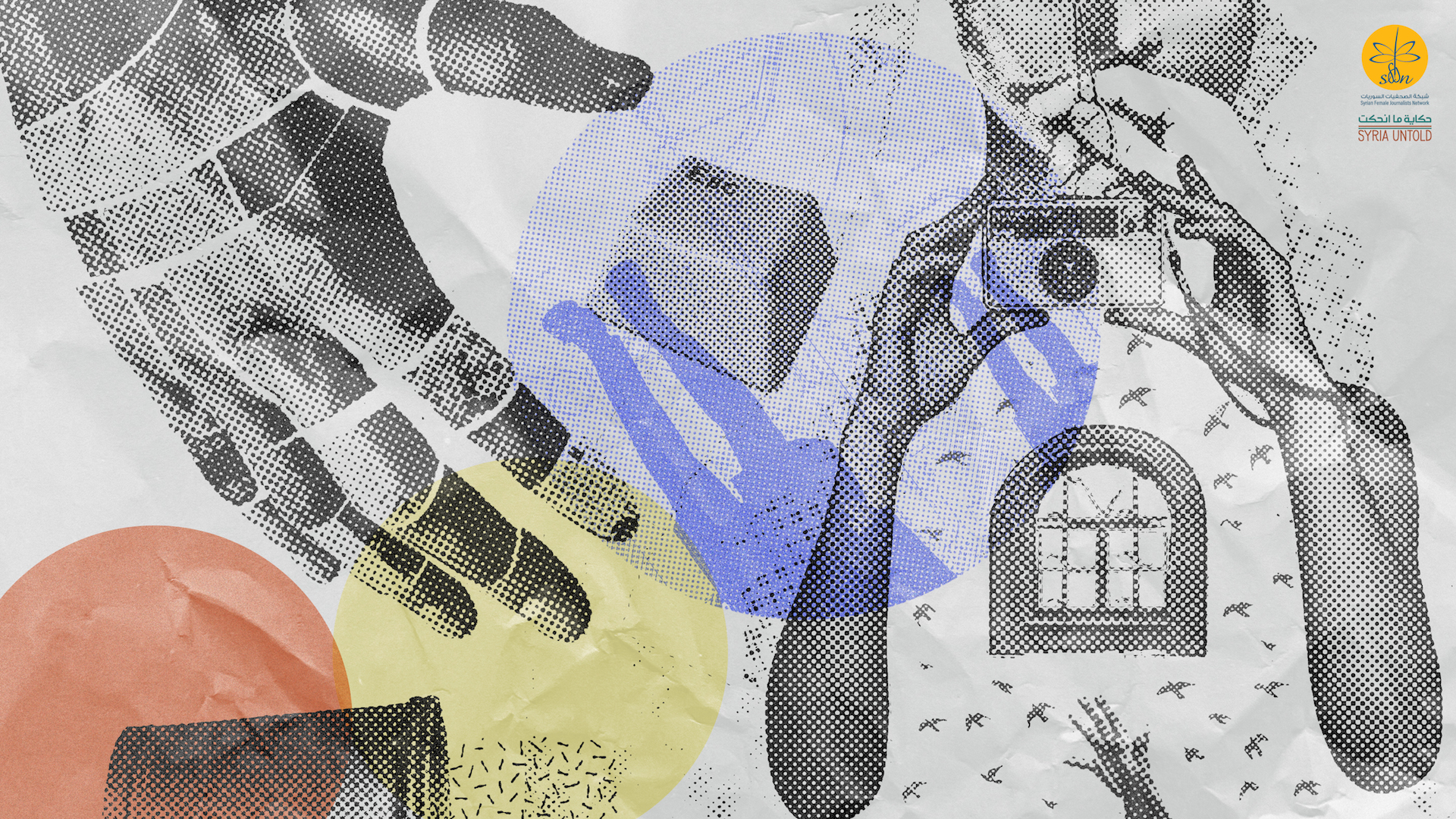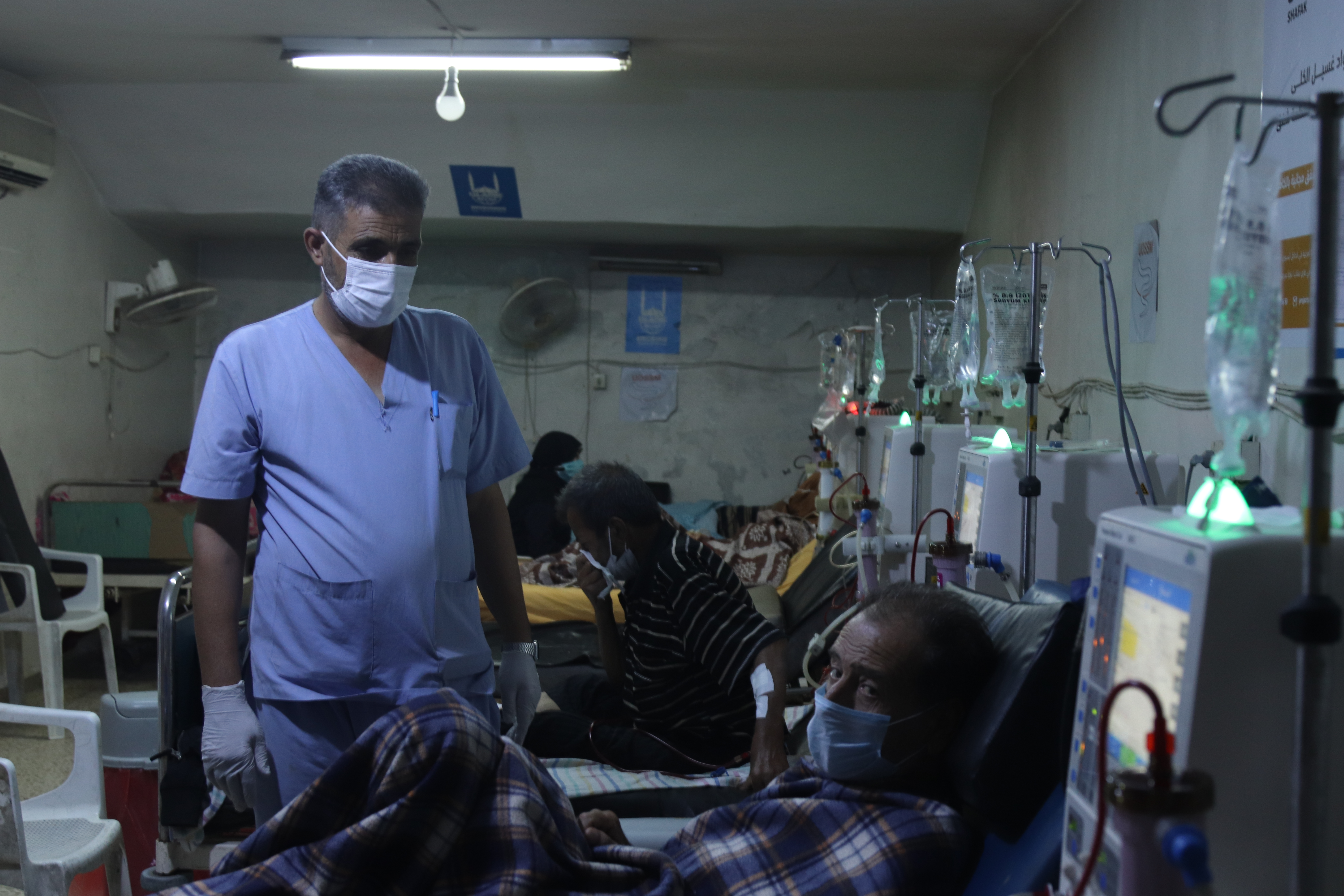This piece is part three of our series on LGBTIQ Syria guest edited by Fadi Saleh, and published with funding from Hannchen-Mehrzweck-Stiftung.
When I was a child, it was not considered unacceptable that I had to salute three different flags: one for UNRWA, one for Palestine and one for Syria. In fact, it was the norm every Thursday and Saturday at the schools of the United Nations Relief and Works Agency for Palestinian refugees.
At first, I thought that was the norm for everyone. You don’t realize you are different until you compare yourself to others. At seven years old, during one of my lessons, the teacher told us that this country was called Syria, and although we lived here, we were not Syrian. We were Palestinian and our country’s name was Palestine.
We are guests here! I remember vividly the sadness this knowledge triggered in me, although I did not fully comprehend it at the time. I also wanted to belong to this place, so I asked my father when I went home: What is this country’s name? He said Syria. And who are we? Palestinians. No matter how many times I repeated the question, I continued to receive the same answer. But the story began when I asked: If we are Palestinians, why are we not in Palestine? That was my first formative encounter with the concept of belonging, and my first step into the world of greyness.
Strategies for rebellion: A queer reading of the Syrian revolution
06 October 2020
Sometimes, you are born in the middle. You cannot reach the “white” part of you and cannot be in the “black” part, as if you are in a barzakh between the world of the living and the world of the dead, fluctuating between two sides. I am Syrian-Palestinian; my first identity is constituted of more than one homeland. This is how I used to present myself.
When I emigrated, I became a Syrian-Palestinian who lives in Sweden. In reality, however, I often identified as Syrian, mostly to avoid having to give long explanations about my story. Perhaps that is why I am passionate about the idea of “Greater Syria”; maybe it’s a strategy to trick myself into feeling that I, like most people, belong to one place without a background story.
Belonging: that fundamental word which engenders most of our human behavior, influences our opinions and affects our entire lives. One is born with his name, religion and homeland given in advance, and then he is thrown into the battlefield called life. All he has to do is survive, while protecting those tools he was given. He spends his life defending what was forced upon him, often not knowing that he is defending what he did not choose. But this is not everyone’s reality; there are some whose names do not fit them, who are not convinced with their religion, whose homeland is nothing but a big prison they are constantly trying to escape.
I never walked the streets of my homeland; rather, I was always escaping in them. I would sometimes take a taxi although the distance I want to travel was easily walkable. For that alone, I spent half of my monthly salary. But I had to avoid the invasive stares questioning me: Are you a guy or a girl?
Imagine being a man in a “woman’s” body: you behave, speak, think and dress like a man, but with a “woman’s” face. In an environment governed by strictly defined roles and gender expressions for men and women, you stand out. That automatically makes you a threat to the integrity of the herd mentality. Because you are an individual, you must be eradicated.
I would frown at all times in order to avoid their words. I would act rudely to others so that they would be discouraged from inquiring about my private life. But the real battle was during my teenage years, when walking was the only option possible. I was still a student, and taking a taxi was expensive. I would take the alleyways instead of the fun, crowded streets, all so that I could walk alone and avoid the bullying and the intrusive gazes. Every trip felt like a punishment. Why was this happening to me if I actually belonged to these streets?
‘Everyone’s battle with themselves’
As I grew older, I discovered that I was not the only one in Syria who had this belonging problem. To my surprise, it was a problem for almost everyone, regardless of their backgrounds or sects. When the revolution started, a Christian friend of mine said to me: this country is not ours. I later heard the exact same statement from a Sunni friend, and a Druze friend, too. I do apologize for mentioning sects, but the problem was never a sectarian one.
There seemed to be a collective feeling, perhaps subconsciously, that one was always in danger. This feeling would intensify the more red lines one crossed and the more taboos one broke. Who am I? Why am I not like the others? Why do I not belong to them? But now I am talking about a different kind of belonging: to oneself. For belonging is not just about the country and its borders as we have been taught by our ruling dictatorships, which made nationalism the most elated and sole standard of belonging against which one’s loyalty—or lack thereof—is measured. This is how they ensure blind loyalty and create herd mentality: everyone is molded in the same way and is not allowed to step out of the box assigned to them.
Imagine being a man in a “woman’s” body: you behave, speak, think and dress like a man, but with a “woman’s” face. In an environment governed by strictly defined roles and gender expressions for men and women, you stand out. You are not like the rest. That automatically makes you a threat to the integrity of the herd mentality. Because you are an individual, you must be eradicated. Your mere, natural existence poses a threat to society because you signify freedom and diversity.
For young Idlib doctors who treated war wounds, COVID an invisible new threat
02 October 2020
There is another kind of belonging; one that is not only premised on saluting a flag or taking part in crowded populist marches celebrating national days. There is belonging to oneself; and if you do not belong to yourself, you cannot belong to a country. How can I belong to a place that forces me to take part in mass celebrations of the “miraculous” achievements of Assad’s “Corrective Movement” of 1970 (while witnessing corruption and devastation everywhere), but that does not allow me to celebrate getting married to the one I love as an LGBTIQ person?
Identity is an expansive concept, branching like a sprig of grapes, and each single grape is an indispensable, irreplaceable part of the whole. Indeed, this is what made the Syrian revolution a dream come true to many minority groups. Essentially, the revolution is an intellectual, cultural, social and political coup d’etat, whereby the homeland belongs to anyone who lives in it and builds it.
But it also means individualism, that you are recognized as a part of its fabric without having to melt and disappear into it or sacrifice parts of yourself in order to fit in. Fighting for such personal freedoms is a fight for existence. When you adopt what is forced upon you in order to be accepted, it is not you who is accepted, but your mask; and masks are sterile soil on which homelands cannot grow. Liberating the individual is the basis for liberating homelands.
The revolution got hijacked; it became politically divided, and was used by different parties to serve their own interests. Nonetheless, it still affected each and every Syrian. We have finally sung out of tune and experienced the beauty of dissonance. We broke the walls standing between us and ourselves and destroyed the taboos and the Gods of fear inside of us.
I still remember my friend’s cries when I was talking to her about how the revolution got stolen and corrupted: No, this is our revolution, she told me. It is, first and foremost, everyone’s battle with themselves.
This is true, for revolutions are not expected to succeed or to build. Revolutions are labor: they are long, and they happen without prior planning or design. They do not follow rules set and imposed by others. A revolution is a birth that only has to happen, and it happened.
We were all inside different closets
There is a well-known concept among LGBTIQs called the closet. Being in the closet means being LGBTIQ but secretive about it, and not declaring it in public. You hide your identity as if you were hiding in a closet. Or, it’s as if you were forced to take off your identity and hide it in that closet, to wear something else that better fits the normative expectations imposed on you.
As Syrians, we were all inside different closets; we did not know ourselves or each other. When the revolution happened, everyone came out of their closets. Chaos ensued, but perhaps it was necessary in order for us to reinvent ourselves, our names, our bodies, identities and homelands.
The times are over when laws, traditions and public morality estranged us from and claimed ownership of our bodies. The times are over when you’re forced to defend a country that was never yours to begin with, and to which you knew you never belonged.
Today, our bodies are ours, and our identities are what we say they are. Our homeland is that which belongs to us, which has space for all of us and where we can all be free and accepted, despite our differences. I will continue to write until the day comes when a child does not have to live in fear while searching for himself, or hide his questions behind masks he invented, like I used to do.
I will continue to write so that not another child wastes thirty years of his life in order to be able to say “I am a man” without his voice trembling and without worrying about his reflection in the mirror. I will continue to write until I find my homeland, where I can salute its flag with the same faith I saluted those flags when I was kid, before realizing what was hiding in their shadows.








